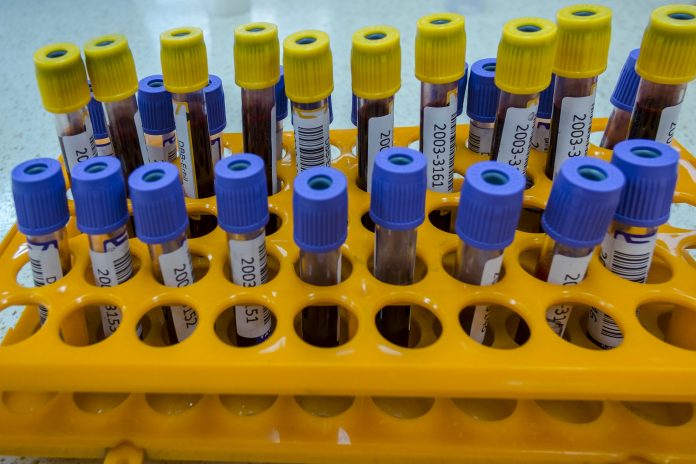The team at Baylor College of Medicine are combining machine learning with a blood test, to hopefully reveal markers of early schizophrenia
When it comes to illnesses like depression, bipolar disorder and schizophrenia, there are no objective diagnostic tests that can scan the human body and reveal which symptoms lead to which answer. Diagnosis depends hugely on self-reported symptoms, corroborated by friends and family, or not at all.
How does a blood test change treatment?
Recently, scientists at the Indiana University of Medicine said that they have developed a blood test for bipolar disorder and depression diagnosis. But actual implementation of the blood test (if it holds up under further testing) is a long way over the horizon, with the lab having already worked on it for four years.
Professor Niculescu, on the Indiana study, said: “Through this work, we wanted to develop blood tests for depression and for bipolar disorder, to distinguish between the two, and to match people to the right treatments.”
The Indiana team, no matter how far away from public use, also served to destigmatise the existence of mental health issues. Even in 2021, self-reported symptoms can be perceived as culturally-specific (e.g. mental health issues are for over-privileged people or white people) or healthcare professionals can let their personal biases cloud a potential diagnosis.
Schizophrenia is a hugely misunderstood, long-term mental health condition. It can appear differently in different patients, which means that the healthcare professional needs a reliable way of diagnosing. The sooner a diagnosis is made, the sooner appropriate help can be accessed.
‘Epigenetic’ factors could be hugely important to diagnosis
“Schizophrenia is a devastating disease that affects about 1% of the world’s population,” said corresponding author Dr Robert A Waterland professor of paediatrics – nutrition at the USDA/ARS Children’s Nutrition Research Center at Baylor and of molecular and human genetics.
“Although genetic and environmental components seem to be involved in the condition, current evidence only explains a small portion of cases, suggesting that other factors, such as epigenetic, also could be important.”
What do they mean by epigenetic factors?
One example of an epigenetic change is DNA methylation — the addition of a methyl group, or a “chemical cap,” to part of the DNA molecule, which prevents certain genes from being expressed.
Essentially, the DNA is not changed but it is expressed in a different way than it should have been – creating a different impact on human health. This study looks at how methylation patterns in blood can be affected by factors such as smoking and taking antipsychotic medications, both of which are common in schizophrenia patients.
How did the team create the blood test?
In DNA from blood samples, the team identified epigenetic markers, a profile of methyl chemical groups in the DNA, that differ between people diagnosed with schizophrenia and people without the disease.
From this data, they developed a model that would assess an individual’s probability of having the condition.
Testing the model on an independent dataset revealed that it can identify schizophrenia patients with 80% accuracy.
Epigenetic differences ‘established very early in life’
“Here, we took various approaches to evaluate whether the methylation patterns we detected at CoRSIVs were affected by medication use and smoking. We were able to rule that out,” said Dr Waterland.
“This, together with the fact that DNA methylation at CoRSIVs is established very early in life, indicates that the epigenetic differences we identified between schizophrenia patients and healthy individuals were there before the disease was diagnosed, suggesting they may contribute to the condition.”
Essentially, the scientists found that epigenetic differences exist long before diagnosis – meaning that they could be predicting elements for who will later be diagnoses with schizophrenia.











